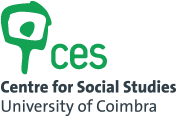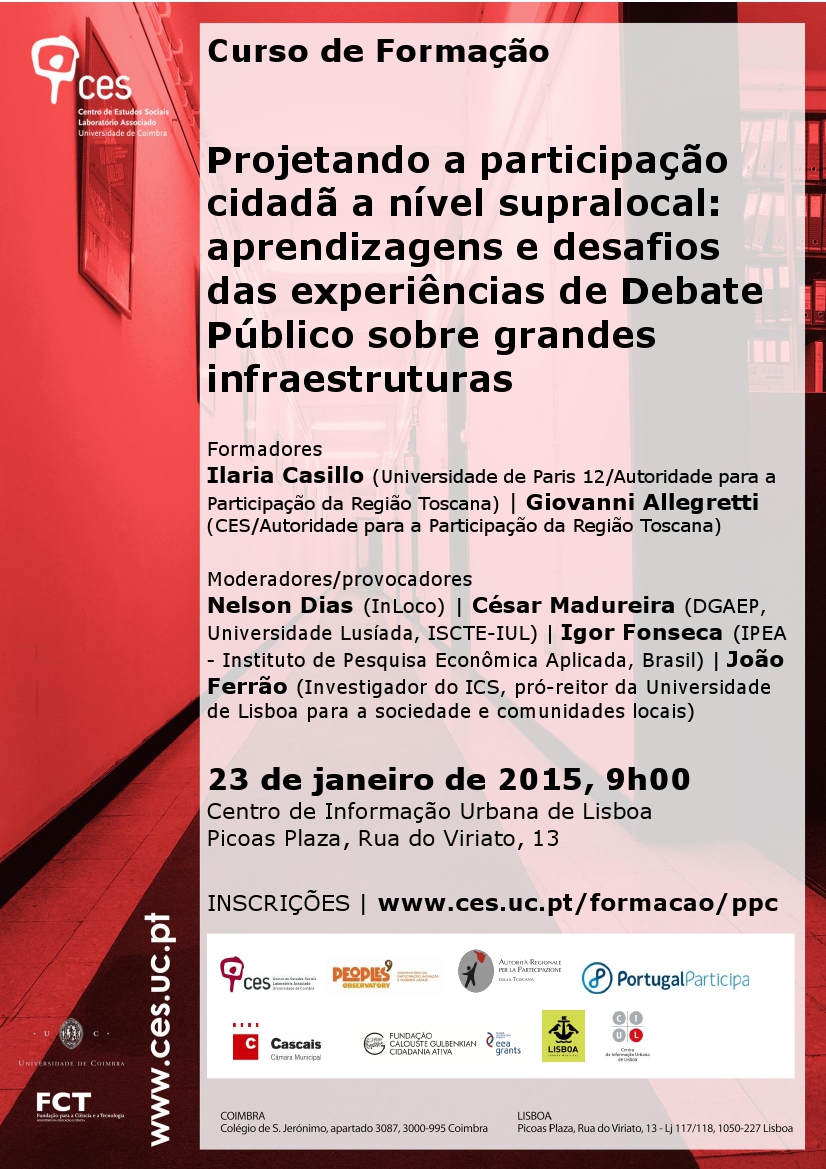Workshop
Designing citizen participation towards supralocal level: learnings and challenges of Public Debate experiences on major infrastructures
January 23, 2015, 09h00
Centro de Informação Urbana de Lisboa | Picoas Plaza - Lisbon
Framework
The growth of criticism on great works of infra-structure of territory and the need to listen to the problems and aspirations of the populations living in the concerned areas, has, during the last decade, given way to number of different solutions focused on the involvement of inhabitants at different stages of decision-making regarding location, compensation and quality of projects. Among the experienced solutions, we call attention to the initiative “Public Debate”, which was adopted in France, with the National Law 95-101 of February 2, 1995 for environmental protection, and expanded to other issues of public policy with Law 2011-814 of July 7, 2011 on bioethics. The methodology - which is used , with some variations, also in various provinces and cities in Canada - is implemented through the work of the National Commission (CNDP), an independent body that oversees compliance with procedures and their quality, currently operative for the past 20 years.
Other countries - although at a municipal or district level - have tried and adapted to their contexts the Public Debate methodology, including some stories of great success, such as the highway construction called “Gronda of Ponente” in the metropolitan area of Genoa (Italy), as well as the transformation of Italian medieval village of Montaione by the transnational tourism company TUI. Since 2007, the Tuscany Region has foreseen, under the Regional Law 69 of 2007, the possibility of self-compliance to develop Public Debate processes on large infrastructural works in case of requests from municipalities or groups of citizens, but the possibility has not turned into concrete experimentation. Thus, in 2013 (with the Regional Law No. 46), the Tuscany Region has made mandatory the conduction of Public Debate processes for all projects worth more than 50 million euros. An independent institution, named Authority for the Warranty and the Promotion of Participation (APP), controls compliance with that obligation, supporting the start-up, organization and evaluation of the involvement of the population.
This course - carried out under the Project “Portugal Participates” – will offer, through theoretical training and case studies, detailed information on the Public Debate methodology , its use and the results obtained so far, explaining how this participatory space - in countries where it has been applied - connects to other paths of social dialogue and environmental impact assessments. Above all, the discussion will centre on to what extent the Public Debate processes manages to happen when “all possible hypotheses are open”, including the so-called “zero option” (as prescribed by Law 46/2013 of Tuscany).
During the course moderators such as César Madureira and Igor Fonseca (who collaborates with the Presidency of the Republic of Brazil on participation projects) will be present, who will simultaneously offer a “mirror”, by identifying other experiences of public hearings in different countries, and provoking debate with the public on the opportunities that have similar methodologies in the Portuguese context.
The debate aims to develop with the participants some hypotheses for the possible admittance of the methodology in Portugal, analysing the onsetting challenges and difficulties.
Working Languages
Portuguese and English
Inscrições
Online Registration Form
Single Modality: 5 euros
Free seats: first 5 registrations from employees of the Municipality of Lisbon and first 3 entries registrations from employees of the Municipalities of Odemira, Cascais and Funchal
Limited number of Registrations: 60
Organisation:
Doctoral Programme “Democracy in the Twenty-first Century” (CES/FEUC), Observatory on Participation, Innovation and Local Government (PEOPLES'), Participatory Democracy Course of the Municipality of Cascais and the Project “Portugal Participates”.
Support:


